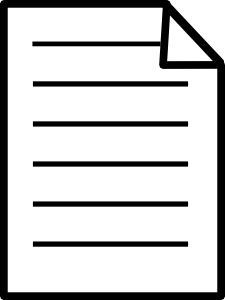Proving Your Education – Documentation of Learning
This post thread started with my book review of Proving You’re Qualified.
In previous posts I discussed some of the elements of an education portfolio – résumés, letters of recommendation, testimonials and work samples. Although what elements go into the making of a good education portfolio varies by individual and job target, a good one might consist of a résumé, letters of recommendation, testimonials, work samples and documentation of learning. I’ll discuss documentation of learning in this post.
Documentation of Learning
Your résumé, letters of recommendation, testimonials and work samples will demonstrate your education well. But there are some educational accomplishments that these may not adequately highlight. That’s when you turn to the documentation of your learning.
So how do you document your learning? There’s no one single way, but it’s generally a simple document that contains information, often categorized by competencies, subject or topic area, where you list everything you have done to learn what you know and can do.
A good way to start the document is to list headings for pertinent competencies. Competencies are general descriptions of the abilities needed to perform a role in a company or organization. For example, a valued competency in most job functions is Communication. Another might be Leadership.
Then list headings for knowledge areas. For example, you might list knowledge areas such as Software, Advertising, Business Analysis, Customer Service, Sales, Writing and Editing, just to name a few.
If you’re having a hard time coming up with competency or knowledge area headings, type “competencies” or “knowledge areas” into your favorite search engine and poke around for lots of good ideas. Select and tailor them to fit your specific industry or target job market.
Below each heading write a short, concise paragraph explaining what abilities, knowledge, skills and experience you have in that competency or knowledge area. Below that, perhaps in bullet point format, list everything you have learned or done that might support pertinent education or accomplishments. These might include:
- Names, dates, locations and brief summaries of workshops, speeches or trainings you have attended.
- Any certifications you hold.
- Titles, authors and brief summaries of books you have read.
- Mentor situations where you have worked alongside or shadowed a mentor along with a summary of what you learned or accomplished.
- Online classes or tutorials you have completed.
- Classroom courses you have completed.
- Anything you have independently researched, written or published.
- Names, dates, locations and brief summaries of conferences you have attended.
- Awards or acknowledgments you have received.
- Successful projects you have completed.
When possible use real-life examples of something you have accomplished that utilized the relevant competency, knowledge or skill.
Get creative. While I’m a believer in brevity, sometimes quantity is impressive and in this case it might be. Dazzle them with how much you know and can do.
